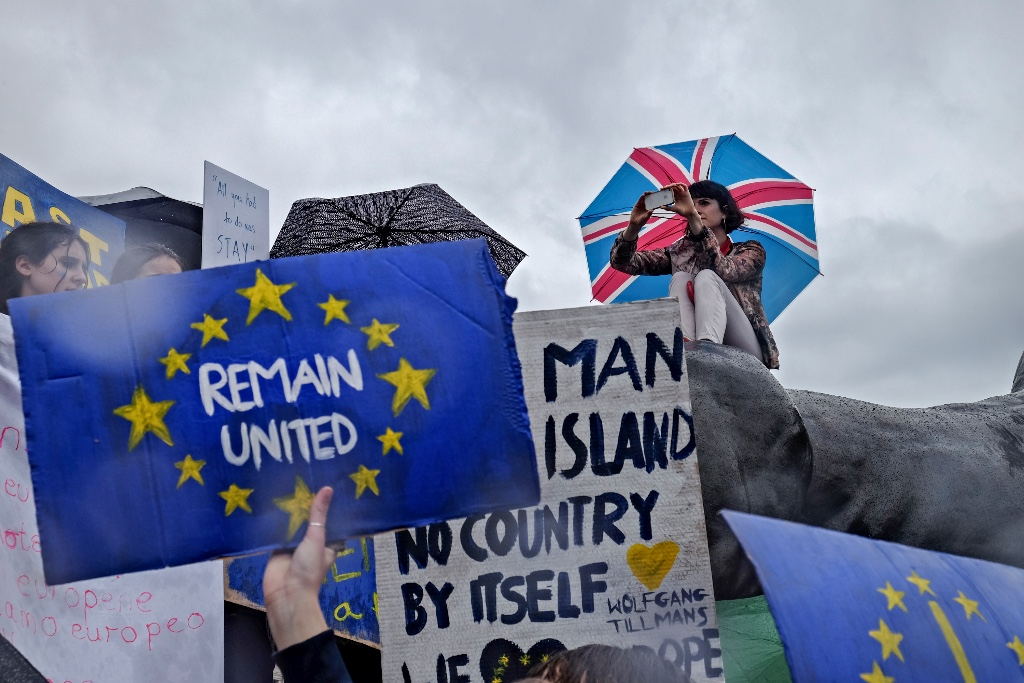The Ethics of Brexit?
The vote by the people of Great Britain to leave the European Union (EU)—the so-called “Brexit”—had immediate, profound, and troubling results
 The vote by the people of Great Britain to leave the European Union (EU)—the so-called “Brexit”—had immediate, profound, and troubling results. The UK is in tatters despite the plea of politicians for everyone to “Keep Calm and Carry On.” Not only did the world’s financial markets drop and the British Pound tumble, but the credit rating agency Moody’s downgraded the UK Government’s bonds to a negative rating. David Cameron, the UK’s Prime Minister and Leader of the Conservative Party, decided to step down. The Labor Party seems in disarray. Many young Brits feel that their future has been stolen from them by the wiles of the aged.
The vote by the people of Great Britain to leave the European Union (EU)—the so-called “Brexit”—had immediate, profound, and troubling results. The UK is in tatters despite the plea of politicians for everyone to “Keep Calm and Carry On.” Not only did the world’s financial markets drop and the British Pound tumble, but the credit rating agency Moody’s downgraded the UK Government’s bonds to a negative rating. David Cameron, the UK’s Prime Minister and Leader of the Conservative Party, decided to step down. The Labor Party seems in disarray. Many young Brits feel that their future has been stolen from them by the wiles of the aged.
Scotland has intimated that a new referendum would be held about leaving the UK. Europeans, in the main, are not amused. Representatives of the EU are calling for a “speedy divorce” from Britain even as political and economic shock waves were felt throughout the Union. Alarmingly, cries of joy are being heard from far right parties in France and elsewhere and, with them, calls for other nations to leave the EU.
No doubt the Brexit vote is the most significant social and democratic event to rack Europe since the “fall” of the Berlin wall. It seems to challenge the very idea of global interaction and integration. Little wonder that the political, economic, social, and cultural meanings of Brexit for modern democracies have filled papers and the World Wide Web as well as dominated conversations in pubs, cafes, homes, and workplaces.
Yet through it all, unbelievably, not a word has been said about the moral significance of this event. As usual, Martin Marty was on top of the news and wrote a Sightings article on Brexit about the dangers of separateness and the possible idols of the tribe. But, if we look at the events surrounding Brexit from an ethical perspective, what is obvious is the immense attraction of forms of “moral particularism.”
Particularism, in the context of ethics, is the claim that each particular community has its own specific set of moral values—what we think is good or just or proper in religious, sexual and economic relations. Members of a community are socialized into its particular beliefs and values. The emphasis, morally speaking, is on distinctive identities: ethnic, religious, or cultural.
This means that criticism of beliefs and values must be made internal to a community, e.g., outsiders do not have the perspective needed to make valid criticisms. One also cannot rightly criticize other communities. One might ignore, tolerate, seek to convert, or conquer another community, but valid criticism of others is not possible. Nor can one’s own moral values be rightly criticized by others.
The paradox of moral particularism is that communities usually want a socio-political mechanism to protect their distinctive identities, say, the UN, NATO, EU Financial Zone, or other international (e.g. non-particular) institutions. And yet by the logic of particularism it is not possible to grant the global ethical validity of those institutions.
However, deeper issues are involved than procedural ones. These issues strike to the meaning of “Europe” as well as to the form that moral consciousness should take in our age. The cultural philosopher and critic George Steiner, in his profound little book, The Idea of Europe: An Essay, has argued persuasively that Europe—a continent with an odd and often conflicted relation of Greek thought and Biblical morality—has represented and must represent a form of humanism that seeks “the realization of wisdom, the disinterested pursuit of knowledge, the creation of beauty.” Not surprisingly, debates about how to configure the EU have whirled around these ideas, values, and historical legacy.
Yet what matters most is a commitment to a form of humanism that, at least in principle, works against the tribalism that might appear in the wake of Brexit. This form of humanism challenges current far right political movements and does so in the name of a shared—and thus universal—human dignity. Shared human dignity obviously can only be lived by particular peoples with distinctive identities. Ironically, a commitment to shared human dignity is the necessary moral orientation needed for sustaining and enhancing peoples’ distinctive identities. It is the awareness of this irony that is missing in the current discussion.
Here, it seems, is the ethical meaning of Brexit. European cultures have flowed from the tensive and yet productive encounter of ancient Greek and Roman thought fused with the moral insight and energy of the Biblical religions—yet, can they endure? What ethical work must be done in order to sustain and replenish a universalistic moral outlook committed to human rights, global institutions, and science-based responses to our environmental situation and protect and enhance particular identities? How might we envision and enact a new Enlightenment that articulates and defends these commitments?
Brexit means that many people in the UK have rejected the European Project and with it the horrendous failures open to criticism by all but also the commitments and global hopes it represents. In this context, one must take a stand. Either we work to further the project of an inclusive, religiously-funded, and knowledge-driven “humanism,” or we travel a path of that might lead to conflicts among tribes waged in the name of specific and incommensurate identities.
Ironically, Brexit forces the question of whether or not we should all now become “Europeans.”
Resources:
Cunningham, Tara, Lauren Davidson and Chris Graham. “UK stripped of final ‘AAA’ rating and FTSE 350 surrenders £140bn in Brexit aftermath.” The Telegraph, June 28, 2016, Business.
Osborne, Samuel. “Brexit: Moody’s downgrades UK’s credit outlook from ‘stable’ to ‘negative’.” Independent, June 24, 2016, Business News.
Stewart, Heather, Rowena Mason and Rajeev Syal. “David Cameron resigns after UK votes to leave European Union.” The guardian, June 24, 2016.
“Brexit referendum: EU ministers press UK for quick exit.” BBC News, June 25, 2016, Europe.
Le Pen, Marine. “Marine Le Pen: After Brexit, the People’s Spring Is Inevitable.” New York Times, June 28, 2016, Opinion Pages.
Marty, Martin E. “Convulsive Ingatherings.” Sightings, June 27, 2016.
Steiner, George. The Idea of Europe: An Essay. London: Overlook Duckworth, 2015.
Image: Thousands of people gather in Trafalgar square in central London, on June 28, 2016, to protest against the UK leaving the EU; Credit: Jay Shaw Baker / Sipa via AP Images.
 Author, William Schweiker, (Ph.D. University of Chicago) is Edward L. Ryerson Distinguished Service Professor of Theological Ethics at the University of Chicago Divinity School. He is the Director of The Enhancing Life Project, supported by the John Templeton Foundation, which explores the basic but widely unexamined aspiration of human beings to enhance their lives and which seeks to increase knowledge in order to assist them. He is the 2015-2016 President of the Society of Christian Ethics. Books by Schweiker include: Religion and the Human Future: An Essay in Theological Humanism (2008, with David E. Klemm), and Dust That Breathes: Christian Faith and the New Humanisms (Oxford: Wiley-Blackwell, 2010).
Author, William Schweiker, (Ph.D. University of Chicago) is Edward L. Ryerson Distinguished Service Professor of Theological Ethics at the University of Chicago Divinity School. He is the Director of The Enhancing Life Project, supported by the John Templeton Foundation, which explores the basic but widely unexamined aspiration of human beings to enhance their lives and which seeks to increase knowledge in order to assist them. He is the 2015-2016 President of the Society of Christian Ethics. Books by Schweiker include: Religion and the Human Future: An Essay in Theological Humanism (2008, with David E. Klemm), and Dust That Breathes: Christian Faith and the New Humanisms (Oxford: Wiley-Blackwell, 2010).
To subscribe: Sign up here. You will receive Sightings by email every Monday and Thursday. For updates about new issues ofSightings, follow us @DivSightings.


